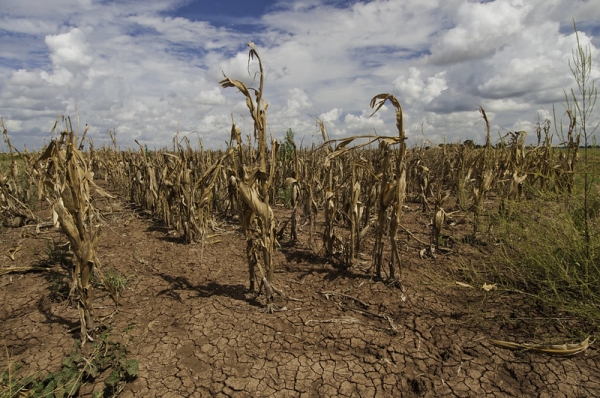Agricultural water scarcity is expected to increase in more than 80% of the world’s croplands by 2050, according to a new study in the AGU journal Earth’s Future.
The new study examines current and future water requirements for global agriculture and predicts whether the water levels available, either from rainwater or irrigation, will be sufficient to meet those needs under climate change. To do so, the researchers developed a new index to measure and predict water scarcity in agriculture’s two major sources: soil water that comes from rain, called green water, and irrigation from rivers, lakes and groundwater, called blue water. It’s the first study to apply this comprehensive index worldwide and predict global blue and green water scarcity as a result of climate change.
“As the largest user of both blue and green water resources, agricultural production is faced with unprecedented challenges,” said Xingcai Liu, an associate professor at the Institute of Geographic Sciences and Natural Resources Research of the Chinese Academy of Sciences and lead author of the new study. “This index enables an assessment of agricultural water scarcity in both rainfed and irrigated croplands in a consistent manner.”
Continue reading at American Geophysical Union
Image via American Geophysical Union


